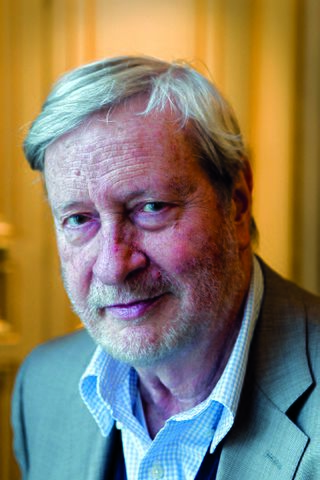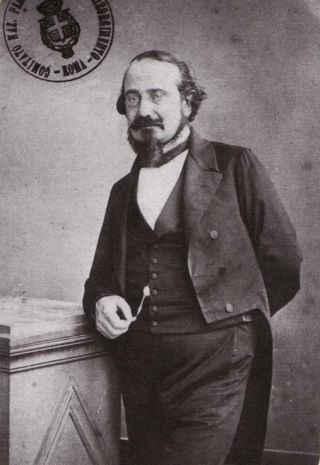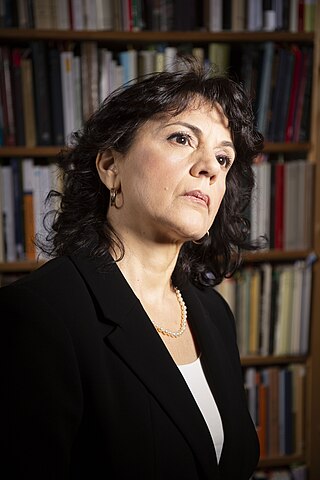
Franca D'Agostini (born September 11, 1952) is an Italian philosopher.

Franca D'Agostini (born September 11, 1952) is an Italian philosopher.
Franca d'Agostini was born in Turin. She earned her BA, MA, and PhD at the University of Turin, where she was a student of Gianni Vattimo. She taught Philosophy of Science at the Politecnico of Turin., [1] and Logic and Epistemology of the Social Sciences in the Graduate School of Economic and Political and Social Sciences at the State University in Milan. [2] [3] She contributes to Italian newspapers such as La Repubblica, [4] La Stampa, Il Manifesto and Il Fatto Quotidiano. [5] She is especially known for proposing a combination of analytical and continental approaches to philosophy via a systematic confrontation of the two traditions in the second half of the 20th century.
Her first book, Analitici e continentali was published in January 1997 and presents a comparison between two major philosophical traditions of the twentieth century: Anglo-American philosophy (primarily analytical), and European or Continental philosophy (stemming from Germany, France, Spain, and Italy). The book, now translated into several languages, has generated a lively debate and is considered a seminal text on this subject. "The image of philosophy presented here," writes Michael Dummett, "is not, in itself, peculiar to the analytical tradition as opposed to other schools. Rather, it stands in opposition to two modern or postmodern lines of thought: relativism and deconstructionism. A relativist denies the existence of such a thing as truth, in the sense of unconditional truth. [...] A deconstructionist can avoid the question of the existence of absolute truth by maintaining that objectivity is an unrealizable ideal. [..] There can never be a fruitful exchange, much less active cooperation, between these two types of postmodern philosophy and the sort that instead believes philosophy to be a vital field in which to seek the truth, and that this search is not performed in vain. Yet, the barrier of incomprehension should not exist between those adhering to the analytical tradition and those trained in the various traditions that form the vast conglomerate of ‘continental' philosophy." Analitici e continentali, concludes Dummett, helps to break down the barrier of "ignorance of one group’s work with respect to that of the other." [6]
Following this publication, D'Agostini has produced many essays and articles examining the relationship between analytical philosophy and other traditions. This topic is also the main focus of her Breve storia della filosofia nel Novecento, published in 1999. In both Analitici e continentali and Breve storia, Franca D'Agostini performs a critical-reconstructive historiography in order to clarify the fate and meaning of philosophical practice in contemporaneity. At the core of these early writings is the essential metaphilosophical question: what are the nature and rules governing philosophy, its methods and styles, its relations with literature and science, its applications and its public use? Breve storia is not so much a history of philosophy, but a history of metaphilosophy in the twentieth century. Philosophy is pictured as the "paradigmatic anomaly" of contemporary science and culture: it is the paradigm within which sciences, the arts, politics and law operate, but it is an anomaly, because it has no conceivable place within the current institutional framework of scientific knowledge. D'Agostini’s metaphilosophical studies reach their culmination with the 2005 volume Nel chiuso di una stanza con la testa in vacanza. Dieci lezioni sulla filosofia contemporanea (Carocci, 2005), which contains a reasoned and ample illustration of the nature of philosophical practice and the key themes of metaphilosophical reflection. Here D'Agostini presents an image of philosophy as conceptual analysis, addressing in particular the "super-concepts" once called the "transcendentals" (unity, truth, goodness, and all their derivatives and synonyms).
Franca D'Agostini has also addressed other key issues within the current philosophical debate, concerning philosophical logic and metaphysics. In particular she has treated nihilism, the problem of truth, the meaning and the nature of metaphysics, and the use of logic in philosophy and in the public debate. In Disavventure della verità (2002) she reconstructs the history of the self-contradictory statement "the truth does not exist," from the critiques of Plato and Aristotle to the declarations of Nietzsche, to contemporary nihilism and relativism. In The Last fumes. Nihilism and the Nature of Philosophical Concepts (2008), D’Agostini provides an interpretation of nihilism as a failed attempt to get rid of the fundamental philosophical concepts of truth, reality, goodness, justice, etc.
Paradossi (2009) offers a reasoned exploration into the field of the most frequently studied paradoxes, presenting a thorough analysis of approximately eighty paradoxes. As Francesco Berto observes, "D'Agostini proposes a unique general theory of paradoxes, centered on the concept of resistant contradiction; she also offers her own criticisms on some of the philosophies put in place specifically to tackle [these paradoxes]." [7]
In a series of articles between 2001 and 2009 and beyond (appearing in aut aut and the Giornale di metafisica, among others), D'Agostini discusses some current debates in ontology and metaphysics, from a perspective which articulates the findings of the analytical tradition against those of the continental tradition.
Franca D'Agostini’s research also encompasses the role of truth in the public sphere. Verità avvelenata (2010) is a brief treatise of argumentation focused on the public debate. According to Gianni Vattimo, "the author’s thorough analysis of the many deceptive arguments to which we are exposed is also a rich phenomenology of our public sphere. And the work’s great appeal consists precisely in its vivacious presentation of these myriad examples by arranging them within the framework of argumentation theory.". [8]
Introduzione alla verità (2011) presents contemporary theories of truth and outlines an original perspective, as a particular version of "alethic realism." "Franca D'Agostini wishes to show that 'we cannot get rid of truth.' Unfounded are the positions of those who argue that the concept of truth is 'dogmatic,' 'deleterious for democracy,' a concept we would do well to ‘rid ourselves of.’ D'Agostini consciously goes against the current: the proper use of the concept of truth is precisely what keeps us away from dogmatism and fanaticism and, particularly in politics, it spurs us not to be satisfied with what the politicians tell us and to verify that what they are saying corresponds to the reality of things." [9]
The essential points of this study are: the "inevitable use" of the fundamental philosophical concepts (unum, verum, bonum), the fundamentally skeptical nature of the predicate of truth, the location of the problem of truth within a perspective of "first philosophy" at the intersection of the three areas of ethics, ontology and epistemology, the idea that the methodology of this first philosophy presupposes an ontological gap encompassing nonexistent objects, universals, and unrealized possibilities. D’Agostini’s philosophical perspective is further clarified in the conclusion of her manual of logic "for philosophy and the ordinary use of language" (I mondi comunque possibili), where she illustrates the close connection of logic, philosophy, and democracy, on the basis of a reconsideration of the meaning and history of the three fundamental concepts.

Nicola Abbagnano was an Italian existential philosopher.

Emanuele Severino was an Italian philosopher.

Gianteresio Vattimo was an Italian philosopher and politician.
Carlo Penco is an Italian analytic philosopher and full professor in philosophy of language at the University of Genoa in Italy.
Ludovico Geymonat was an Italian mathematician, philosopher and historian of science. As a philosopher, he mainly dealt with philosophy of science, epistemology and Marxist philosophy, in which he gave an original turn to dialectical materialism.

Costanzo Preve was an Italian philosopher and a political theoretician.

Luigi Pareysón was an Italian philosopher, best known for challenging the positivist and idealist aesthetics of Benedetto Croce in his 1954 monograph, Estetica. Teoria della formatività, which builds on the hermeneutics of the Austrian philosopher Ludwig Wittgenstein.

Antonio Millán-Puelles was a Spanish philosopher interested in phenomenology and metaphysics, who published many books and articles. He discovered his vocation to philosophy when he read Husserl’s Logical Investigations and abandoned the medical studies he had just begun.

Giacomo Marramao is an Italian philosopher who teaches theoretical philosophy and political philosophy at the Roma Tre University in Rome.
Maurizio Ferraris is an Italian continental philosopher and scholar, whose name is associated especially with the philosophical current named "new realism"—Ferraris wrote the Manifesto of New Realism in 2012, which was published by SUNY Press in 2014) -- which shares significant similarities with speculative realism and object oriented ontology.
Michele Marsonet is professor of philosophy of science and methodology of the human sciences, chairman of the philosophy department and vice-rector for international relations at the University of Genoa in Italy. Having worked as associate professor, first of logic and then of philosophy of science, at the University of Genoa from 1992 to 1999, he was then a full professor of theoretical philosophy and institutions of philosophy. He was also dean of the faculty of arts and humanities of the University of Genoa from 2002 to 2008. His main areas of study are in pragmatism, philosophy of science, metaphysics, methodology of the social sciences, political philosophy and philosophical logic. He has published extensively on the works of Nicholas Rescher.

Augusto Del Noce was an Italian philosopher and political thinker. He is regarded as one of the preeminent political thinkers and philosophers after the Second World War in Italy.

Bertrando Spaventa was a leading Italian philosopher of the 19th century whose ideas had an important influence on the changes that took place during the unification of Italy and on philosophical thought in the 20th century.
Simona Forti is an Italian philosopher and academic, whose main interests are in political philosophy and contemporary ethics. She was born in Modena in 1958. She graduated in Philosophy from the University of Bologna in 1983. In the following years she attended the Phd courses in political theory at the Turin University as well as the Phd courses in political philosophy at The New School in New York. She received her PhD in History of Political Thought from Turin University in 1989. In 2004 she was appointed Full Professor of History of Political Philosophy at the University of Eastern Piedmont. In 2020, she was appointed Full Professor of Political Philosophy at the Scuola Normale Superiore, in Pisa, Italy. She is one of the founding members of FINO”, a PhD Program in Philosophy coordinated by the Northwestern Italian University Consortium, and the standing president of Bios, an international and interdisciplinary research center on biopolitics and bioethics based at the University of Piemonte Orientale.
Imre Tóth, born in 1921, was a philosopher, mathematician and science historian, who specialized in the philosophy of mathematics. He worked on non-Euclidean geometry, mathematical irrationality, freedom, Plato and Platonism, Aristotle, Spinoza, Kant, and Hegel. He was born in Satu Mare, the year after the Treaty of Trianon recognized it as a part of Romania, to a very religious Jewish family that had fled from the 1920 pogroms. Resisting with the Communists during the Second World War and then excluded from the Party, he narrowly escaped death in the camps. After the war he studied at Babeș-Bolyai University. He died on May 11, 2010, in Paris.

Julio Cabrera is an Argentine philosopher living in Brazil. He is a retired professor of the Department of Philosophy at the University of Brasília and former head of the department. Previously he taught in Argentina, at the National University of Córdoba, the University of Belgrano and then in Brazil at the Federal University of Santa Maria. He is best known for his works on "negative ethics" and cinema and philosophy. Other areas of philosophy that he deals with are philosophy of language, logic and Latin American philosophy.

Donatella Ester Di Cesare is an Italian political philosopher, essayist, and editorialist. She currently serves as professor of theoretical philosophy at the Sapienza University of Rome. Di Cesare collaborates with various Italian newspapers and magazines, including L'Espresso and il manifesto. Her books and essays have been translated into English, French, German, Spanish, Portuguese, Danish, Serbian, Croatian, Polish, Finnish, Norwegian, Turkish, and Chinese.

Tiziana Andina is full professor of theoretical philosophy at the University of Turin.
Paolo Valore is an Italian philosopher and academic who deals with metaphysics, general ontology and the ontological implications of formal theories. He is also interested in projects of artificial languages and auxiliary languages.
Paolo Rossi Monti was an Italian philosopher and professor of philosophy at the University of Florence.
{{cite web}}: CS1 maint: archived copy as title (link)